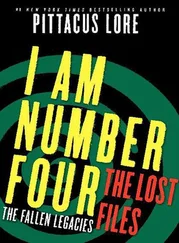Penelope sniffs the air and smiles toothily, thanking me for my welcome but — and here she almost purrs — extremely surprising news. She regrets that her house is full tonight — I should come back tomorrow and there will be room enough. The black-haired boy, apparently a favorite, pipes up that they have no other guests, so why can’t the peddler stay, but she puts a finger to his lips. Though her movements are gentle there is a new predatory light in her eyes. As she surreptitiously sizes up the men who crowd around her, their stupid, trusting, Ithacan faces remind me of my own men, all lost, and I make a hasty goodbye, leaving sooner than is polite.
I set off into the warm night, walking briskly, not minding much where I am going so long as I put the hall out of earshot behind me. After many miles I find an abandoned shepherd’s hut, just visible from the road. I try to sleep but end up lying under my cloak for hours listening to the crickets play and the wind sigh through the branches. Every time a branch cracks I bolt upright, poised, alert, sword in my hand, holding my breath. Probably just foxes making their nocturnal rounds. I know I am being absurd. I think of Penelope’s green eyes and the mooncalf faces of her lovers. I wonder if I performed the rites properly and my men, all dead now, have such peace as the shadow kingdom can afford. I wonder how Telemachus is doing and wish I could have seen him. By the time the moon sets I have given up on sleep and go outside to sit on the porch and stare out into the dark woods.
While I wait for dawn, my mind turns back to the one time I met my father-in-law Autolykos, lord of high peaks and deep valleys a week’s hard journey into the mountains of the mainland. Wolf song had ushered me up through the last pass and into his domain, a prosperous quiet land where the dark pines were thick up to the edges of the fields. I was picking my way along a narrow track in a dense stretch of forest when he stepped out of the trees with his daughter at his side and greeted me. A young deer, just gutted, was slung over his shoulders. He was a rangy, wild-looking man with the quiet air of one who had never been contradicted. His daughter, Penelope, was barefoot and wore a torn, ill-fitting dress that hung so awkwardly she might have just shrugged it on. There were twigs in her hair and she never smiled but even in her bare, muddy feet she walked with a careless hauteur that would have discomfited Helen. Autolykos led me through his village and down to the deep river valley where his hall was built, an old place, mostly underground, with the roots of ancient, still-living trees for pillars and a foundation. The servant was clumsy, singeing the venison and burning his fingers. As we ate, Autolykos made odd little formal stabs at conversation. We discussed the weather (unseasonably cold for spring), the wheat (which seemed to bore him), the wars in the East (of which he knew nothing) and the migration of elk (which, finally, engaged him). He and his silent daughter ate with their hands. He watched me sidelong as I used my knife. Ithaca is not so cosmopolitan and it was the first time I had ever felt effetely civilized.
When we had washed our hands he questioned me about my family: Who was my father? My father’s father? How long had my line been kings? (He suppressed a snort when I told him five generations.) Were there heroes among them? Was there any madness, divine possession or shameful defect of person? Then he interrogated me about my island: What were the forests like? Was the hunting good? Was it far away from every other place where men lived? How well could I control my people? I painted a portrait of a line of kings who had been at the periphery of the great events of Hellas but had never permitted the slightest infringement of their prerogatives or weakening of their bloodline, and of a harsh island of many valleys, full of mists, favored by hunters, where it was easy to lose one’s way. Of the people I said they were strong-minded and though the land was poor they were not — Ithacans were steadfast, good fighters and better traders. He asked about the character of the people, their religious observances and what they feared. I sensed he was circling around something and replied that in Ithaca people minded their own business and that in any event if I chose to give them a queen they would not only accept her but like it too. This seemed to satisfy him. He drew me up and embraced me, wishing me good luck and long life, large dominion and many children, and said that he would be gone in the morning. He smelled sharp and musky, full of spices. Then he showed me to my room, comfortable but practically a cave, and that was the last I ever saw of him.
I slept deeply that night, for all that the forest was full of movement. Sometime in the small hours Penelope came in to get me, clad only in her shift, her eyes green in the moonlight. She shook me awake and led me by the hand out into the woods. I assumed that it would be futile to ask for explanations. We went deep into the forest and all I could see in the sighing darkness were stray patches of moonlight on the pine needles.
She pulled her hand away and vanished. Entirely awake, I balanced on the balls of my feet, listening, hands out as though to feel currents in the air. I could hear motion among the trees, now here, now there. I saw a flash of green eyes. Something moved behind me and I ducked as she sprang at me, the fur on her flank brushing my shoulder. My eyes had adjusted and I caught just a glimpse of her, and she was a fine thing, so very fleet. She didn’t lunge again but stood in a patch of moonlight where I could see her face, where amusement and threat were written in equal measure, but I showed no fear and she disappeared again, coming back moments later, a woman again, and insinuated herself into my arms. Hera *was never invoked and there were neither gifts nor priests but I suppose that was when we were married.
The next day I led her out through the valley and up through the mountains and soon after we sailed for Ithaca. I brought her to my father’s house and she was gracious with her new relatives but privately complained that the place smelled like centuries of dead wood and men, though I think that really she was just homesick. To please her, I built a new house, centered around our bedroom, in which I carved our bed out of the wood of a wide-trunked, still-living olive tree, its fruits falling onto our roof each summer. She did not want it said that she was strange or that she clung to the old ways, so we kept the bed a secret, even from the servants.
The next morning I take my armor from my pack and cast away Nohbdy’s cloak and name. I find a stream and shave with my dagger. I stride into town in the center of the road, very much the master. There are no guards at the gates but a maid sees me coming and flutters inside. In the empty, newly white-washed courtyard another maid is weeping hysterically, surrounded by three others, one of whom is gripping her shoulder and speaking to her in a low, brutal whisper. They see me and fall silent, their faces blank. I go into the great hall and there is Penelope, a head shorter than me, green-eyed and pretty in her red dress, smiling demurely. She embraces me and says all that is right and sheds a tear of happiness as the maids energetically scrub the already pristine flagstones behind her. One maid hurries past us on her way to the midden with a sack of scraps from the slaughter-room. The cloth sack is soaked through and a second maid runs behind her to wipe up the trail of red droplets.
The celebration lasts into the night and our reunion is entirely convivial. I tell Penelope about the war and my many exploits, already feeling myself becoming a bore whose only conversation is of battles long past. She seems not to notice when I skim over Circe and Calypso, and for my part I take no notice when her own history becomes light on detail. In the evening Telemachus appears, back from hunting, and greets me respectfully. I kiss him and turn his face this way and that in the light, pleased beyond words to see him.
Читать дальше












